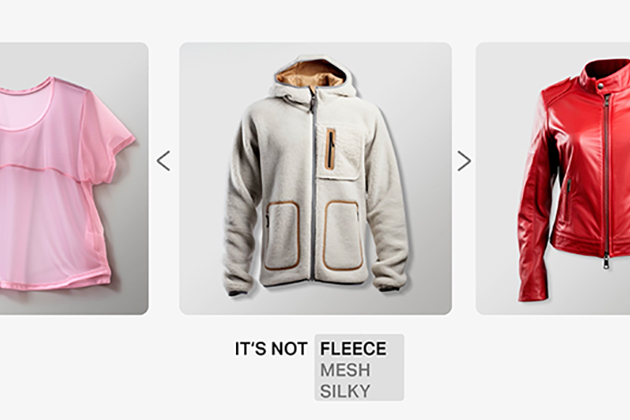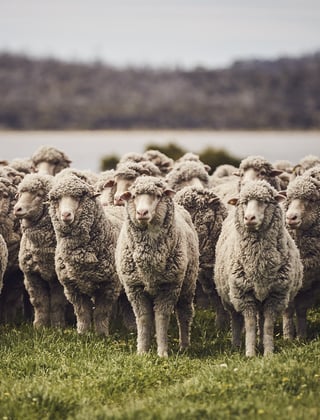Woolmark encourages all to ‘filter by fabric’

To help shoppers to easily identify authentic wool products, The Woolmark Company has launched a new initiative to encourage brands and retailers to include clear and honest product names that accurately communicate fabric composition, and to incorporate a filter on their online stores that allows shoppers to easily search for apparel by fabric type.
A recent YouGov survey showed that ambiguous terms – such as ‘fleece’ and ‘silky’ – confuse consumers and make it difficult for them to readily identify what a fabric is really made from, especially when synthetic materials are used to mimic natural fibres in clothing.
In response, AWI’s marketing arm The Woolmark Company has launched the ‘Filter by Fabric’ campaign to help end this confusion, urging all fashion brands, retailers and publishers to commit to clear, honest product names that accurately communicate fabric composition.
The initiative also encourages them to modify the functionality of their online stores so that consumers can search for apparel by fabric type (eg wool) when shopping.
The YouGov study – comprising 4297 adults in UK, US and France – revealed 77% of people believe clothing brands and retailers should clearly disclose fabric composition. However, this vital information is often hidden, misrepresented, or undisclosed.
The same research found that 60% of respondents would find sustainable choices easier if stores included fabric in the product name or allowed customers to filter by fabric.
Sign the pledge
The Woolmark Company is encouraging people to sign a pledge (at www.filterbyfabric.com) that urges the fashion industry to take action, in the following ways:
- STOP using misleading language on product names.
- START adopting accurate descriptions that cite full fabric composition for all product listings.
- OFFER a filter to allow shoppers to easily sort by fabric type.
Fashion brands, retailers and publishers can also take a pledge at www.filterbyfabric.com, by expressing their commitment to add honest fabric descriptions to all apparel product names and adopt a Filter by Fabric option.
Global fashion giants such as Benetton and leading international designers such as Saul Nash have already joined the Filter by Fabric campaign, as have leading Australian brands Iris & Wool, Merino Country and Albus Lumen, amongst others.

Online stores often enable the shopper to filter the available products by options such as colour and size; the Filter by Fabric campaign encourages retailers to enable online shoppers to also filter by fabric.
Choosing natural fabrics should be easier
AWI CEO John Roberts says by focusing on fabric consideration as a vital aspect of consumer purchases, the Filter by Fabric initiative aims to accelerate the fashion industry's movement toward transparency and sustainability, which will also benefit the wool industry.
“We know wool is natural, sustainable and biodegradable but it is also important to call out the fossil fuel-derived fabrics to prevent consumer deception,” John said.
“This simple, lasting action could initiate a significant transformation in the industry, encouraging transparency, responsibility, and mindful consumerism. Educating consumers is crucial for them to understand the importance of the information on apparel labels, similar to how they interpret food nutrition labels or appliance energy ratings.”
More information: www.filterbyfabric.com
SIGN THE PLEDGE
The Filter by Fabric initiative aims to help consumers to focus on the environmental impact of a product’s fabric and make more informed and sustainably conscious purchasing decisions.
Consumers and retailers can sign their pledges at www.filterbyfabric.com
The consumer pledge:
“I believe in the power of informed choices to create real change. I urge all brands and retailers to step up to adopt a Filter by Fabric option and add honest fabric descriptions to all apparel product names.”
The retailer pledge:
“We commit to offering a Filter by Fabric option and including clear fabric descriptions in product names. Together, we can drive positive change, help consumers make more informed choices and reduce the fashion industry's environmental impact.”
This article appeared in the December 2023 edition of AWI’s Beyond the Bale magazine. Reproduction of the article is encouraged.














